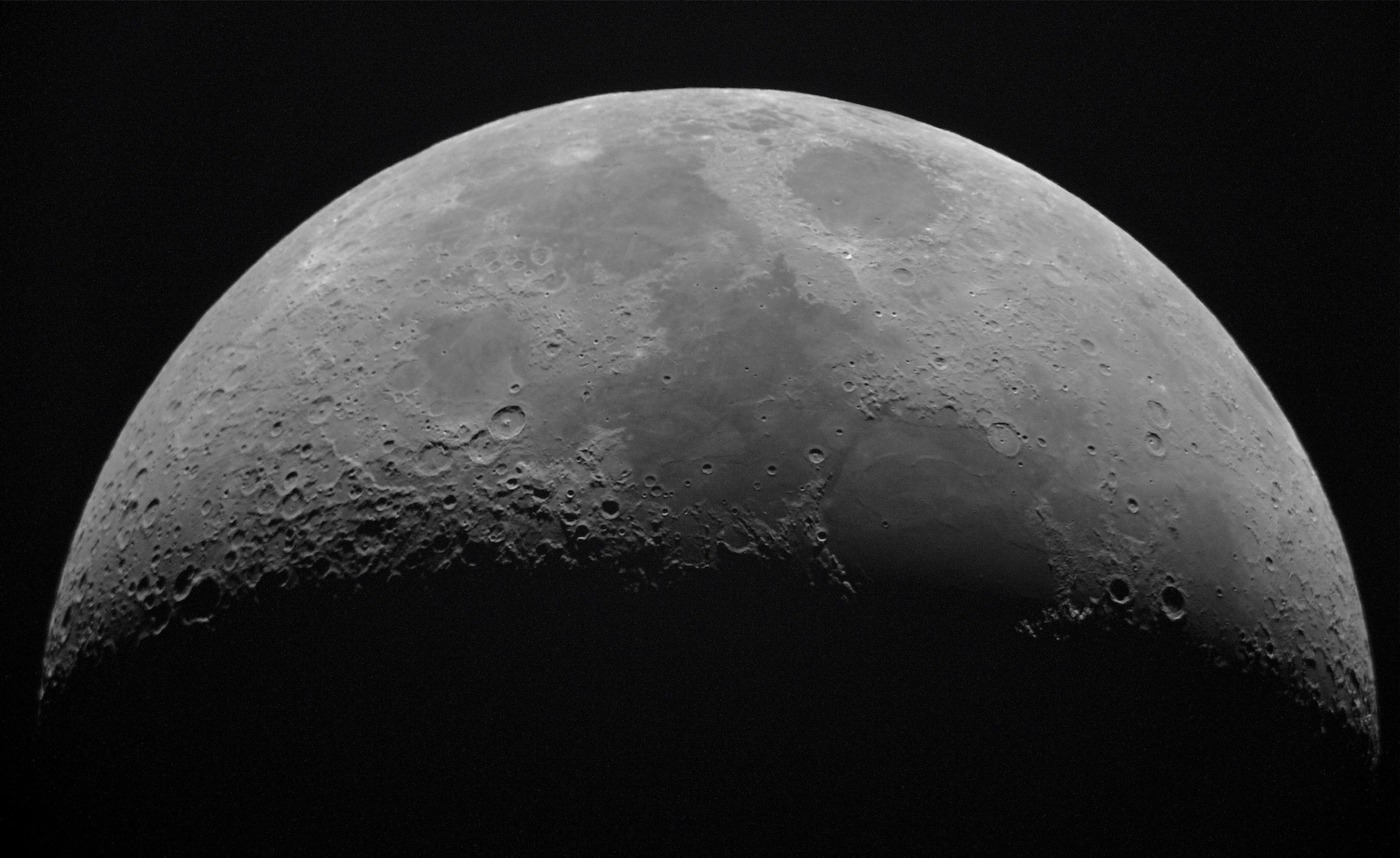The legality of lunar enterprise and moon mining
Everyone’s heading to space! President Trump wants to create a Space Force, and business tycoons like Elon Musk and Richard Branson are striving to make space a commercial venture. When it comes to space, humanity’s first step has always been the Moon – and, where humans go, business is sure to follow. Many companies and countries are eyeing up our lunar satellite, primarily for its mining potential, but what checks and laws exist to protect the body?
Firstly, we start with what materials we can find on the Moon. The Moon was separated from the Earth by a huge impact billions of years ago, which means that its makeup is very similar to our own – we’d be able to increase our stocks of gold and platinum, as well as a bunch of rare elements like yttrium (which are normally key components of our electronics). There’s also water, which could fuel craft heading further afield – if that was the plan, you’d need to construct tons of infrastructure on and below the lunar surface. The Japanese firm iSpace is one of those looking to explore the Moon’s water potential, with a plan eventually culminating in a space-based economy where the Earth and Moon become one system.
Outer Space Treaty… stating that “outer space, including the Moon and other celestial bodies, is not subject to national appropriation by claim of sovereignty”
Imagine how Earth would react to companies setting up headquarters on the Moon. That reaction leads to a big question – who could actually claim possession of the Moon and its resources? The only obvious answer is America, as its astronauts are the only ones to have visited the Moon (in manned missions between 1969 and 1972), and the American flag is planted there. However, things aren’t quite as easy as that. The question of owning celestial bodies was a big deal during the Space Race, which led to the UN putting together an Outer Space Treaty. Stating that “outer space, including the Moon and other celestial bodies, is not subject to national appropriation by claim of sovereignty, by means of use or occupation, or by any other means”, the treaty was signed in 1967 by countries including the USA, the UK and the then Soviet Union.
On that note, if you’ve ever bought land in space, I’m afraid any document you have won’t be worth a thing when you head out there. Cases have been taken to the courts before – in 2000, Gregory Nemitz registered a claim for the asteroid Eros, and sent NASA a parking ticket when they landed a satellite on it. NASA refused to pay, and Nemitz took them to court – eventually, his case was thrown out.
Now, in 1967, things like mining rights didn’t really matter, but the issue was revisited in 1979 when the UN produced its so-called Moon Agreement. It stipulated any state activities on the Moon must be peaceful, and the UN must be told where and why anyone planned to build a station. It states that the Moon and its resources are “the common heritage of mankind”, and that an international regime should be set up to govern the exploitation of its resources when their exploitation was a potential prospect. In premise, it’s a good agreement, but only 11 countries have ratified it (including France and India). The big space players – China, the US and Russia – have not. China actually made a soft Moon landing on January 2, and it’s currently looking to set up a research station on the body and analyse its resources.
If you’re the first mining company on the Moon, for example, what’s to stop you doing whatever you want?
These existing treaties were praised on creation, but enforcing them is always the more difficult part. Countries that sign up to the treaties incorporate them into law and have the responsibility of ensuring companies and individuals abide by them. The existence of a law, however, does not mean it will be followed, and it is not realistically possible as it stands for the law to be policed in space by power on Earth – if you’re the first mining company on the Moon, for example, what’s to stop you doing whatever you want? There’s also the question, of course, of the countries that haven’t ratified the treaties, and how they should be treated if they contravene it.
Now space travel has been hitting the headlines again, some countries have been changing the law to their own benefit. The USA passed its Commercial Space Launch Competitiveness Act in 2015, which recognised the right of its citizens to own any resources they mined from asteroids (the Moon isn’t mentioned, but it’s a logical extension of the act). Luxembourg granted the same rights to its citizens in 2017. Helen Ntabeni, a lawyer at Naledi Space Law and Policy, said it could be argued that the two countries had “bullied” their way out of the Outer Space Treaty’s stipulations, and that “I’m quite sceptical that the high moral notions of the world exploring space together as equal nations will be preserved”.
The legality of space exploration and colonisation is an issue that has not received much discussion because, until the last few decades, there was little need for it. But, as more countries and companies turn their eyes to the sky, it may be time to reconsider what rules ought to exist when we leave our planet and head into the final frontier.

Comments
Comments are closed here.